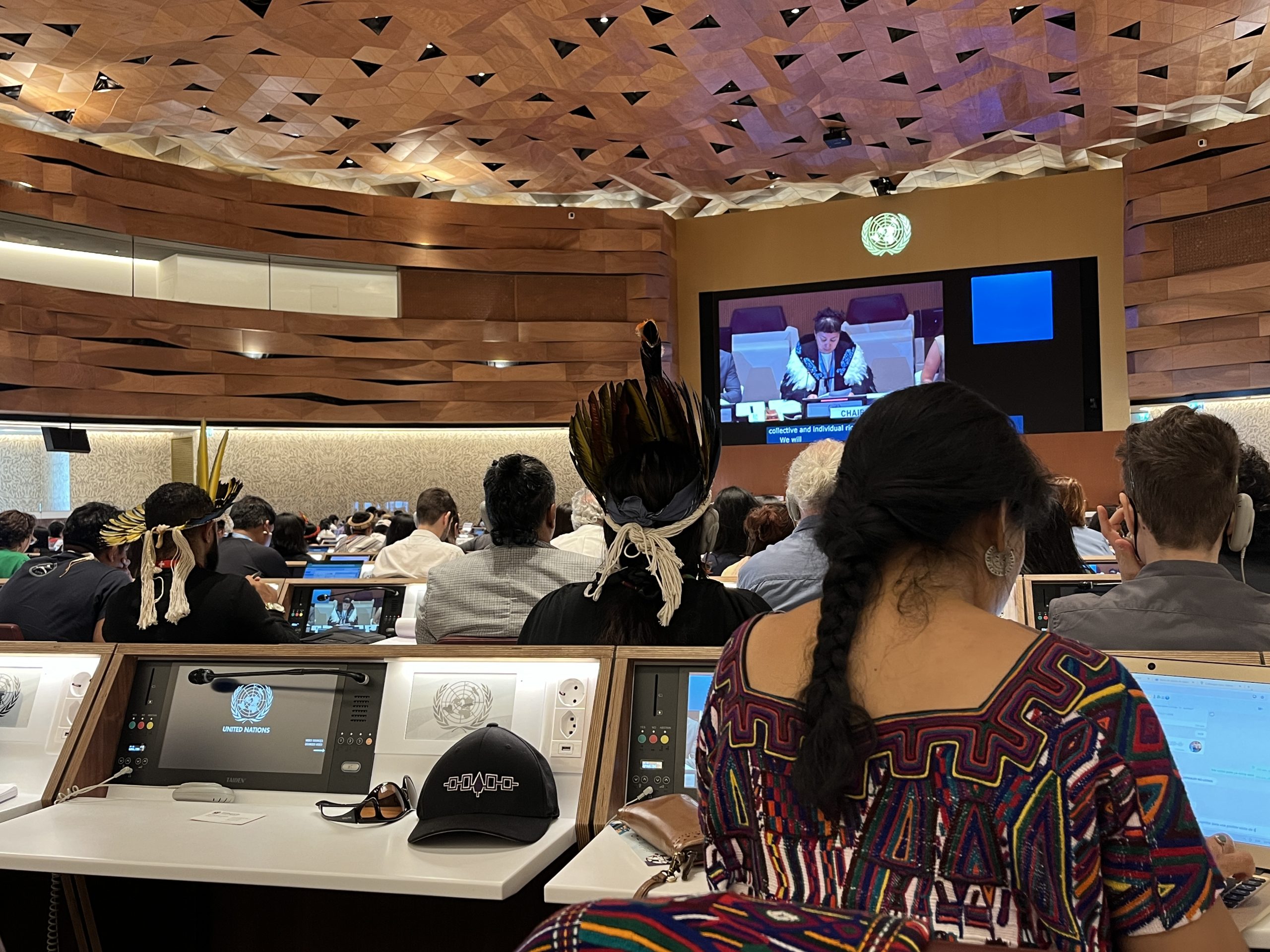Indigenous communities have a history of taking care of the environment. While they are among those who contribute the least to climate change and environmental degradation, they are one of the groups who are facing most vulnerabilities and risks. Indigenous Peoples have been historically marginalised, discriminated against, and subjected to numerous violations related to land grabbing, forced evictions, extractive industry operations and other threats. In addition, Indigenous defenders are also constantly exposed to harassment, intimidation, criminalisation and in some cases killings. According to the Business and Human Rights Resource Centre, between January 2015 and August 2022, 883 attacks on Indigenous human rights defenders were documented related to business operations, including killings, threats, arbitrary detention, and strategic lawsuits against public participation (SLAPPs).
States should establish measures to guarantee that Indigenous defenders can exercise their individual and collective rights without intimidation and harassment; develop, adopt and adapt adequate protection mechanisms for Indigenous defenders and communities; and establish adequate measures to guarantee that State and non-State actors, including businesses, are held accountable for attacks against Indigenous Peoples.
Consultation and free, prior and informed consent
During the most recent session of the Expert Mechanism on the Rights of Indigenous Peoples, ISHR highlighted the importance of conducting effective and meaningful consultation with the objective of obtaining the free, prior and informed consent of Indigenous Peoples. Reaching such consent should not be a mere formality, but an ongoing process that should be conducted in good faith, transparency and through mechanisms established by Indigenous Peoples’ own forms of organisation.
In French Guiana, the United Nations Committee on the Elimination of Racial Discrimination (CERD) recently expressed concern about the lack of such process by the Centrale Électrique de l’Ouest Guyanais (CEOG), a power plant that has been under construction since November 2022: there ‘might have been no consultation or free, prior and informed consent of the Kali’ña people before the approval of the project’. The communities have insisted that they did not oppose the construction of the power plant per se, but its proposed location which is currently in a forest of major cultural and economic importance for the village of Prospérité.
In Guatemala, in addition to the structural discrimination faced by Indigenous Peoples, climate change, desertification, land grabbing, and the consequences of extractive industries have led Indigenous communities to displace from their territories. The situation has worsened due to increasedforced evictions in the country, particularly in Alta and Baja Verapaz. ‘The dispossession of [Indigenous Peoples’] lands is a scourge that has worsened in recent years,’ said Volker Türk, UN High Commissioner for Human Rights, during his official visit to Guatemala in July this year.
Inclusive and meaningful participation of Indigenous Peoples in multilateral fora
Enhancing the participation of Indigenous Peoples is paramount to guaranteeing that decision making processes are inclusive and meaningful. For this reason, ISHR welcomes the organisation of the First Inter-sessional meeting to discuss and develop measures to enable and facilitate the participation of Indigenous Peoples in the work of the Human Rights Council (HRC). In this sense, the HRC should take into consideration three guiding pillars when enhancing the participation of Indigenous Peoples: self-determination, self-identification and consultation.
During the session, ISHR highlighted that enhancing the participation of Indigenous Peoples would also require addressing the current limitations for engagement within the UN system. For instance, it would require tackling the lack of provisions for remote and hybrid participation tools, which disproportionately impacts underrepresented groups and hinders their access to multilateral spaces.
Moreover, the lack of financial support and of flexible visa procedures are also challenges that prevent meaningful and inclusive participation of Indigenous Peoples. There is an urgent need for action to tackle these challenges,including appropriate security measures, addressing the language and technological barriers that may deter Indigenous Peoples’ engagement; and establishing procedures, including registration platforms, that are accessible, transparent, inclusive, and sensitive to their needs.
While the discussions will continue in October, States should ensure that Indigenous Peoples are meaningfully consulted and can participate genuinely in matters that affect their rights.




